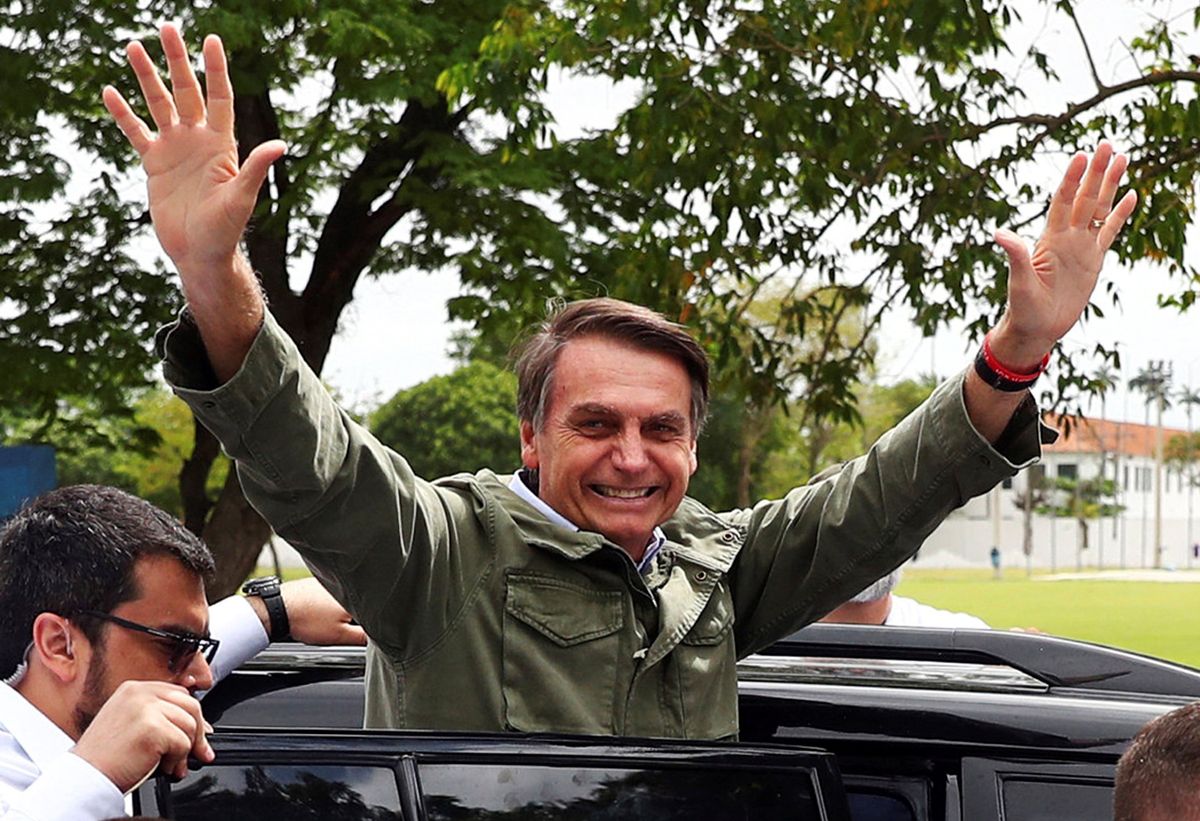Throughout Brazilian president-elect Jair Bolsonaro’s rise to power, his controversial views on domestic issues have been front and center. But as the right-wing populist prepares to take office early next year, it’s also worth considering how he may seek to change Brazil’s foreign policy and global role.
Since the 1990s, Brazil has frequently made common cause with other developing countries to advance mutual interests, even when it required taking stances in opposition to Europe and the United States. Brazil has long seen itself as a progressive force in global affairs on a range of issues, including the development of global responses to climate change. From the mid-2000s onward, the then-ruling Workers Party (PT) made a particular point of strengthening Brazil’s ties with the other large developing countries of the “Global South”, like China, India, Russia, and South Africa.
Bolsonaro has pledged to smash all of that. He wants to refashion Brazil’s foreign policy in a way that both supports and replicates US President Donald Trump’s transactional, assertively nationalistic approach to global affairs. Here are the areas where Bolsonaro may seek to move boldly and quickly to put his stamp on foreign policy.
China – Bolsonaro is no fan. He’s criticized China’s political system and repeated long-standing Brazilian concerns that Chinese firms buy up Brazilian land and resources while undercutting its manufacturers. Earlier this year, he ruffled feathers in Beijing by making an official visit to Taiwan. He clearly seeks to pivot away from Beijing, but he’ll have to trade carefully: China has been Brazil’s largest trade and investment partner for almost a decade, and key industries such as agriculture and mining are eager to avoid clashes with an important source of both demand and investment.
Venezuela – The president-elect will likely support tighter sanctions and stricter measures to stop the flow of Venezuelan refugees into Brazil as its northern neighbor’s economy continues to collapse. He may find an ally in Colombia’s new security-minded president, Ivan Duque, whose country has absorbed more Venezuelan refugees than any other. If talk about a possible US-backed military intervention heats up again, watch the military-minded Bolsonaro closely.
Israel – Bolsonaro says he wants to follow Trump’s lead by moving the Brazilian embassy from Tel Aviv to Jerusalem. This would be popular among Brazil’s large evangelical population, a solid base of support for the devout Bolsonaro. However, it would cause frictions with Brazil’s huge meat industry, which counts Arab countries among its largest export markets.
The environment – Bolsonaro is a climate change skeptic, and although he has backed off earlier pledges to remove Brazil from the Paris Climate Accord (which would entail a messy fight for him in Congress), he has promised to ease environmental licensing requirements for infrastructure projects, Brazil’s lucrative cattle, forestry, and mining industries. It isn’t clear how much that would impact the already-accelerating deforestation of the Amazon, but environmental activists are already concerned.
Trade – Brazil is a highly protectionist country. Bolsonaro’s economic team wants to change that – by lowering some of Brazil’s tariffs, leaving behind a cumbersome regional customs union in South America and, over the longer term, striking new agreements with the European Union and the US.
In contrast with domestic policy, where Bolsonaro will have to slog through a fractious congress, foreign policy is an area where the Brazilian president is largely unconstrained. If the going gets tough at home, Bolsonaro may look abroad for some quick wins.


















